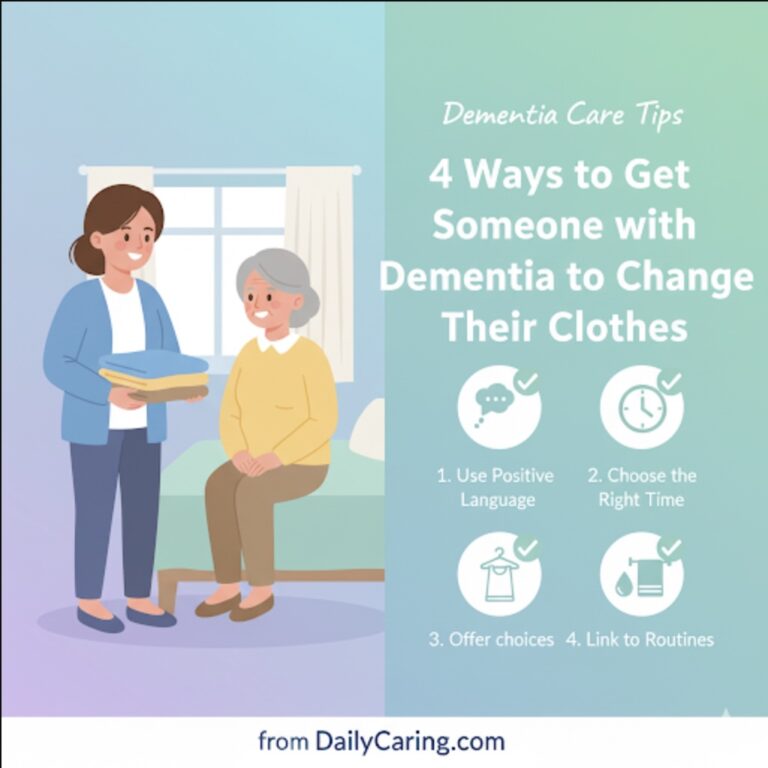Engaging in meaningful activities can significantly improve the quality of life for people with dementia. Activities provide mental and emotional stimulation, help maintain motor skills, reduce agitation, and foster a sense of accomplishment. However, as dementia progresses, everyday tasks can become challenging.

Adapting activities to match your loved one’s abilities ensures they remain enjoyable and fulfilling. In this article, we explore four key benefits of activities for individuals with dementia and share five practical ways to modify daily tasks to support independence and overall well-being.
Dementia Activities Designed to Boost Self-Esteem
When someone has Alzheimer’s disease or dementia, their cognitive function may be declining, but they still have abilities.
Doing as much as possible within their current ability level keeps them active and may help maintain their skills for longer.
We found a helpful article from MindStart on the importance of purposeful activities for individuals with dementia.
They encourage us to broaden the idea of “activities, ” including everyday tasks and entertainment, outings, and events.
They also encourage adapting activities and providing support to help older adults maintain independence and accomplishment – something we all need, no matter our age or health condition.
We share highlights from the article that explain four reasons dementia activities are so essential and five ways to adapt activities to fit someone’s ability level.
4 Reasons Dementia Activities are so Important
1. They Can Slow the Dementia Decline
As the saying goes, “use it or lose it.” Even though we mean well and want to help as much as possible, we may end up helping too much.
Continuing to do as many activities and daily tasks as independently as possible benefits seniors with dementia.
Instead of automatically helping with a task, we should adapt activities as needed to allow them to do as much as possible for as long as possible.
That can help them retain abilities and stay active for longer.
2. Activities Can Provide Daily Structure
Individuals with dementia benefit from a consistent daily routine.
Structure to the day gives needed predictability and stability when someone with dementia feels disoriented or confused.
3. Activities Provide a Feeling of Productivity
As dementia progresses, older adults are capable of less and often feel like a burden.
Helping them participate in everyday tasks and activities can boost mood and improve quality of life.
4. Dementia Activities Reduce Challenging Behaviors
Activities can also reduce common dementia behaviors, like agitation, repeated questions, and anger.
This keeps them engaged and occupied, allowing them to use their energy positively.
5 Ways to Adapt Activities for Someone Experiencing Dementia
Individuals at different stages of dementia will require varying levels of assistance. These guidelines help you adapt activities to suit your loved one's ability level.
As the disease progresses, you’ll provide more help to compensate for the greater decline. Overall, the goal is to help them feel successful.
1. Set up the Activity Ahead of Time
Prepare the activity for your older adult. Do this when they can complete the activity after it’s set up.
For example, you can help them brush their teeth independently by putting toothpaste on their toothbrush and placing it next to the sink.
Alternatively, lay out each item of clothing on the bed in the order you will use it.
2. Provide Adequate Supervision
When your older adult needs more help, set up the activity and stay nearby while encouraging them to complete it independently.
You’ll be able to correct errors or solve problems that might come up gently.
For example, if you need to wash dishes, you could set up a soapy sponge and stack the dishes next to the sink.
Then, stand nearby to ensure the water is at the right temperature, so you can help if any spots are missed.
3. Prompting Can Reduce Anxiety for People with Dementia
When someone needs more help, you may need to prompt them to avoid frustration.
If they get stuck, point out the next step, provide the necessary item, or ask what the following action is.
For example, when they're getting dressed, you could point to the shirt first. When that’s on, point to the pants or ask, “What’s next?”
4. Use Direct Verbal Cues if Prompting Isn't Enough
When prompting isn’t enough, your older adult may need gentle guidance through each step with simple spoken directions.
For example, if your older adult is washing their face in the morning, you may guide them with brief directions, allowing plenty of time to accomplish each step.
“Pick up the washcloth. Turn on the faucet. Put the cloth in the water to wet it. Turn off the faucet. Squeeze the towel to remove the water. Wipe your face.”
5. Provide Physical Assistance When Necessary
When your older adult is still physically able to complete the task but needs physical help, gently guide their actions.
Doing things this way can feel silly to you, but it does help them feel like they’re participating and completing the task.
For example, if they were washing dishes, you could put your hand over theirs and guide them to rub the dish gently with the sponge.
Recommended for you:
- Home Dementia Exercise Program Increases Abilities and Improves Symptoms
- Activities for Dementia: 10 Fun, No-Fail Ideas
- Memory Café: Social Activities for People with Dementia
About the Author

Connie is the founder of DailyCaring.com and was a hands-on caregiver for her grandmother for 20 years. (Grandma made it to 101 years old!) She knows how challenging, overwhelming, and all-consuming caring for an older adult can be. She also understands the importance of support, especially in the form of practical solutions, valuable resources, and self-care tips.













